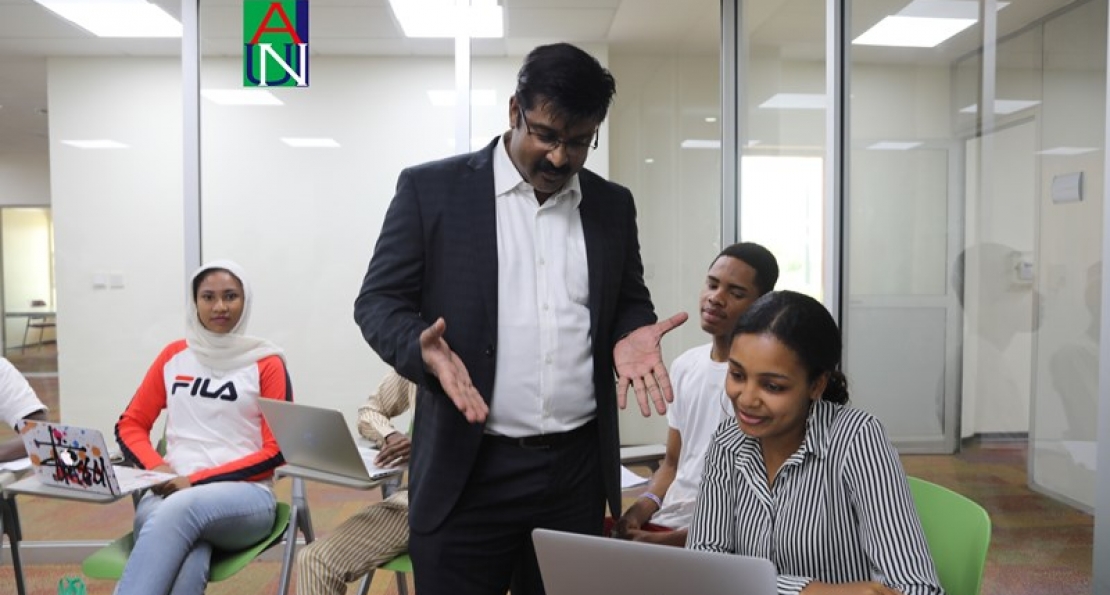The mark of a great university is decidedly the ability to turn adversity into opportunity. This aptly describes AUN’s transition to full digital learning in the wake of the COVID-19 pandemic. With this feat, the AUN learning community has achieved yet another milestone. For the remainder of the Spring 2020 semester, this University's vast technological resources will be put to good use.
Not even the coronavirus pandemic which has forced the closure of all universities in Nigeria would be allowed to dent AUN's highly cherished reputation for running 30 uninterrupted semesters since it first opened its classroom doors for learning, in the fall semester of 2005.
The online mode of academic instruction took off on Monday, March 30, 2020, and classes for the remainder of the Spring 2020 semester are expected to be completed on Friday, April 17, 2020.
While announcing the closure of the campus on March 20, President Dekle had assured departing students and their parents of continuity in their studies despite the shutdown as the University prepared to switch to familiar online delivery modes.
With the switch now completed, the President could not hide her excitement: "I am proud of how our AUN learning community is adjusting to the COVID-19 health crisis. We have transitioned to alternative learning platforms quickly, allowing us to continue our Spring 2020 semester with as little disruption to the academic calendar as possible, said Dr. Dekle, while adding that ''Our capacity for swift and successful deployment of AUN's massive tools and techniques of technology within such short notice, is unprecedented in the region.''
In preparation for the takeoff of online instruction, the Professor Samuel Tesunbi-led Office of Academic Planning & Quality Assurance (APQA) collaborated with the Office of Technological Support (OTS) to organize a refresher workshop for faculty and staff to achieve a seamless transition to ensure quality learning engagement and achievement of learning outcomes.
At the training sessions, APQA's Assistant Director, Nasiru Yakubu, expressed confidence that AUN's technical competencies and resources would make the online teaching experience successful without compromising the values of academic productivity.
Before takeoff, the Deputy Vice-chancellor/Provost, Professor Mohammadou Kah, had sent a notice to all students highlighting detailed information resources, including a contact list they might need during the period of online learning.
Mentor/Learning Support Advisors were appointed to periodically follow up with the students directly, via email and/or phone call or social media platforms. These resource persons, according to the Deputy Vice-chancellor, will facilitate additional support and interfaces between students and their instructor and other offices on campus.
The Mentor/Learning Support Advisors have initiated communication with their students through a Student Support Initiative channel.
The University Librarian, Benson Ali, had earlier announced that undergraduate and post-graduate students would be granted unimpeded access to scholarly e-books and e-journal articles they may require for their courses and research.
The Chief Information Officer (CIO) Francis Chaming, has also mailed to the students a list of officers from his Office of Technological Support (OTS) whom they can contact for software and hardware support to make their online experience as hassle-free as a technologically endowed University like AUN can offer.


